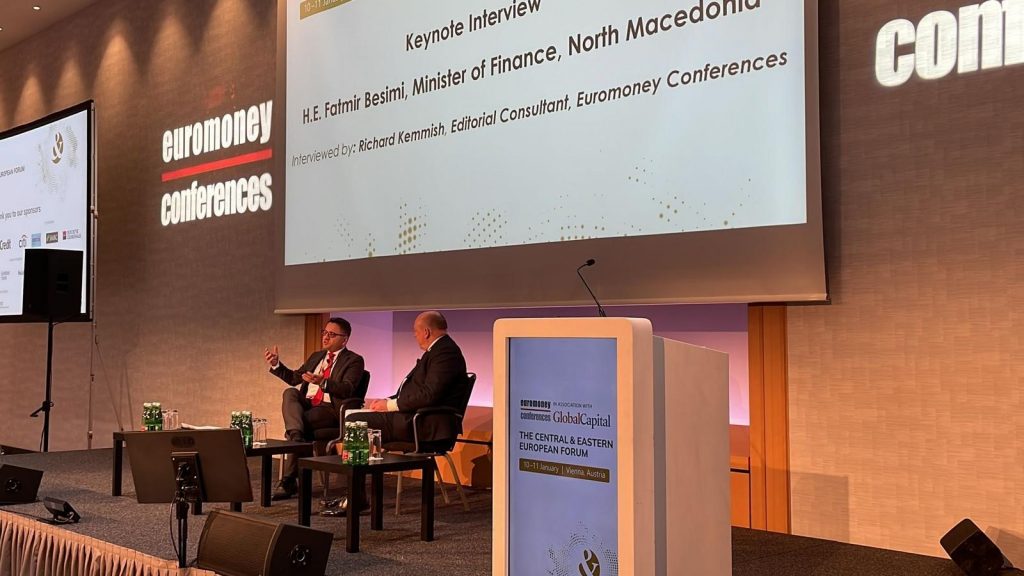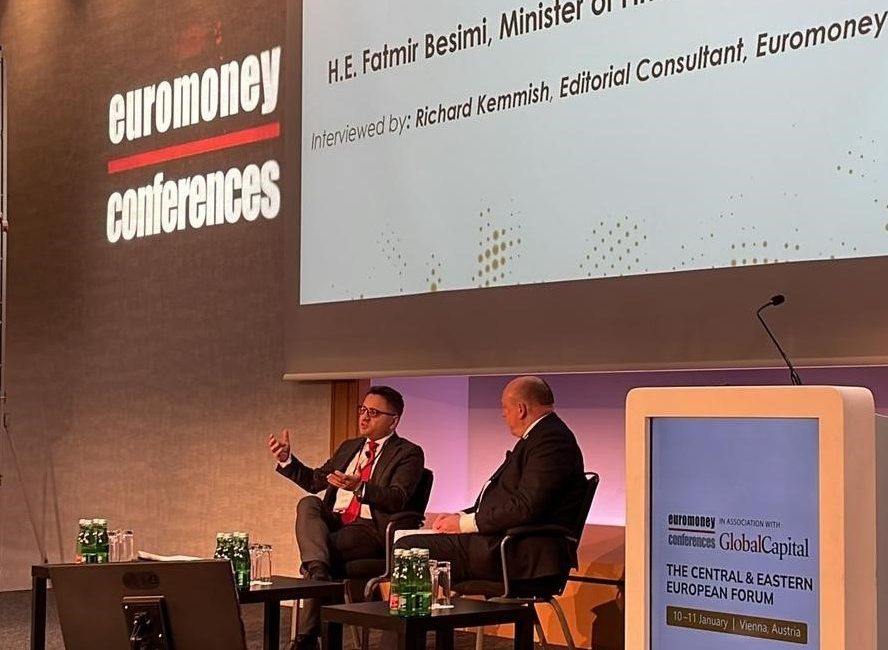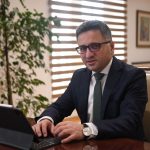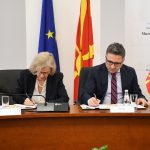10th January 2023, Vienna – Government of the Republic of North Macedonia implements sound policies, thus adequately responding to the crisis and laying foundations for further long-term development. We are pursuing cautious fiscal policy, =thus safeguarding the public finance stability, thereby working diligently on reducing the budget deficit projected at 4.6% of GDP this year, which is to be reduced to 3.4% of GDP next year, as pointed out by Minister of Finance, Fatmir Besimi at Euromoney Central and Eastern Europe Forum, taking place in Vienna, Austria.
“Getting access to the funds under the IMF Liquidity and Precautionary Line speaks in favor of the polices implemented in our country. Cautious fiscal policy we implement provides for safeguarding the public finance stability. We are committed to reducing the budget deficit, which is to be reduced to 4.6% of GDP this year, and to be additionally reduced to 3.4% of GDP next year. Fiscal consolidation will be attained via measures on both the revenue and the expenditure side. We are dedicated to taking actions on the revenue side via the tax reform, as well as with respect to the expenditures thorough better targeted support. The newly adopted Organic Budget Law, covering medium-term fiscal period, is additional contribution to this reform agenda, by setting the deficit and public debt levels as those in the EU. Pursuing cautious fiscal policy, coupled by scaled-up public investments, is of crucial significance”, Minister Besimi pointed out.
He went on that in order to respond to last year’ shocks triggered by the energy and price crisis, the country was supposed to provide EUR 300 million, as requested from the IMF via PLL and other instruments, with more favourable terms and conditions than those in case of issuance of potential Eurobond. We are monitoring the developments on the capital markets. As for the year ahead, EUR 800 million should be provided as foreign financing, EUR 450 million out of which as repayment of the Eurobond falling due in July 2023. EUR 80 million is expected to be provided by the EU this month, as a budget support, aimed at cushioning the impact of the energy crisis, accompanied by ongoing discussions about potential macro-financial assistance from the EU and World Bank support via the development policy programs.

“Our activities are focused on safeguarding the public finances, ensuring sound public investments, improving the energy policies, coping with the rising inflation and underpinning the financial stability. In addition to IMF support, via PLL instrument, the planned activities will provide for laying foundations for sustainable long-term growth beyond the crisis”, Minister of Finance said.
He thereby stressed that the structural reforms geared towards boosting the long-term growth remain to be our top priority, whereby maximum efforts will be put to the end of improving the education and the active labor market policies, increasing the minimum wage and boosting the productivity, as well as via upcoming economic reforms, being related to the launched EU accession negotiations.
Minister also touched upon the support our country provides in attracting foreign investments, as well as the support extended to domestic companies for the purpose of boosting the competitiveness, the innovations and the technologic development, so they can join the supply chains of the foreign companies present herein.
Minister emphasized that despite the global challenges substantially affecting the domestic economy, foreign direct investments remain stable. Thus, during the first nine months of 2022, they reached over EUR 520 million, which speaks in favor of our country being an attractive destination for making investments even in times of crisis.
Inflation, as a global issue, affecting all countries, including ours, was surely an inevitable topic at the conference. Minister presented the measures the country undertakes for coping with this challenge, thereby announcing that the inflation, during the last months of 2022, gradually stabilized, recording downward trend.
Euromoney Forum was attended by Ministers of Finance, Governors, representatives of financial institutions, investors discussing the prevalent issues related to the financial markets and the economies in Central and Eastern Europe. This Forum is an opportunity for meeting economic policy makers, investors and economists interested in this region.
















